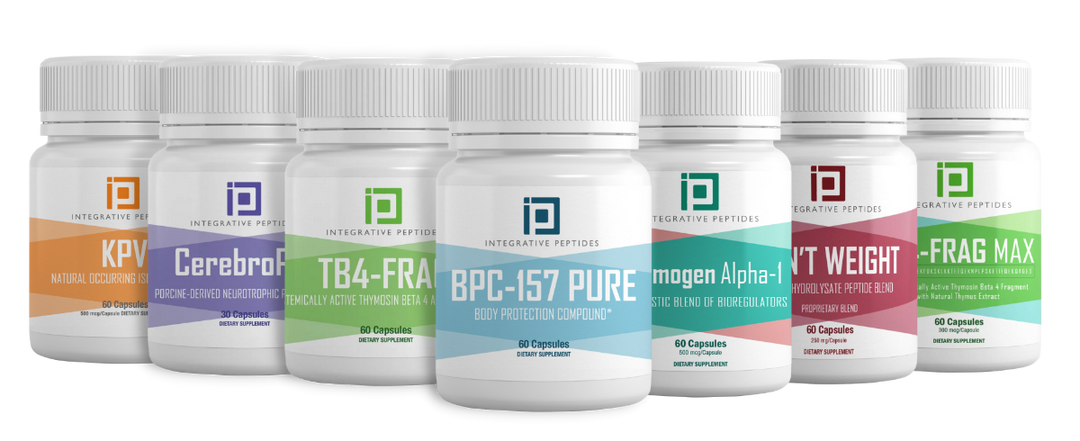Do you want to improve your health and well-being but feel like your body is working against you?
While our bodies have their own sets of checks and balances in place to keep everything working as it should, sometimes life and aging can get in the way of these capabilities. Unfortunately, this dysfunction can lead to age-related diseases, poor functionality, and declining health.
Biohacking offers a way to reconfigure the biology in your body, getting your systems back on track.
What is Biohacking?
Hacking itself refers to gaining access into a system—with our bodies comprised of numerous systems, each performing critical duties, they can also be hacked into, something called biohacking.
With biohacking, you make incremental changes to your diet, body, and lifestyle to modify your biology, which can then improve your performance, health, or well-being. It can also be referred to as human enhancement and may involve anything from prompting faster weight loss to improving brain function.
Wondering if biohacking is for you? It may be if you’ve ever wanted to:
- Have more control over your health
- Fix parts of your health and wellness that are lacking
- Explore new and unusual ideas
- Try to extend your life
The elements of biohacking may seem like something straight out of a science fiction novel—after all, how else can you explain the claims that you can alter your biology? However, biohacking has been around for decades. You may already be a biohacker if you follow a specific diet to influence your biology (e.g., keto diet or intermittent fasting) or use a smartwatch to monitor your sleep habits and tweak them based on what you see.
The possibilities of biohacking only continue to grow, and this brings along a host of benefits that biohacking can offer.
The Benefits of Biohacking
With all the types of biohacking, whether through nutrition, wearable technology, or lifestyle changes, you can see a wealth of benefits based on what you initiate.
Enhances Physical Performance
Biohacking offers the opportunity to enhance your physical performance. For example, by combining targeted exercise routines with a specific nutrition plan, you can improve your strength and endurance.
One exercise type commonly used by biohackers is high-intensity interval training (HIIT), which consists of short bursts of intense activity followed by periods of rest or low-intensity exercise. Research has shown that HIIT offers many benefits for biohackers, including improved exercise capacity by increasing aerobic endurance, maximal oxygen uptake, and anaerobic capacity. With HIIT, these improvements are seen no matter your fitness level, so whether you’re previously inactive or are an athlete, HIIT can improve your physical performance.
Yet another exercise type that can aid biohacking efforts is resistance training. In regard to physical performance, resistance training can improve movement control and functional independence, allowing your body to continue functioning like a young adult, no matter your age.
Prevents and Manages Diseases
Biohacking offers a way to prevent and manage various diseases that can otherwise limit your life and well-being.
One example of this is resistance training, with one study finding that this form of biohacking can help prevent and manage type 2 diabetes by reducing HbA1c, improving insulin sensitivity, and decreasing visceral fat,. Thus, incorporating this one type of exercise into your routine can lessen your risk of diabetes and aid in your management of the disease if it is already present.
Resistance training offers benefits for other diseases, as well. Namely, resistance training may improve cardiovascular health by increasing HDL cholesterol, decreasing LDL cholesterol and triglycerides, and reducing resting blood pressure.
Various biohacking peptides can also improve your health. For example, the peptide BPC-157 has been shown to heal the GI tract, pancreas/liver lesions, and various other tissues and wounds. It can also counteract alcohol-induced lesions while also showing potential in preventing and reversing arthritis.
Boosts Cognitive Abilities
Nootropic supplements are those that can help to enhance brain function, which can then improve memory, focus, reaction time, learning speed, and creativity.
Nootropics see these benefits thanks to their interference with the metabolism of neuronal cells in the central nervous system (CNS), improvement of the brain’s supply of oxygen and glucose, and prevention of brain tissue from neurotoxicity. Some nootropics may improve neuronal protein and nucleic acid synthesis or eliminate oxygen free radicals, while others may improve blood flow to the brain—all of these actions allow the brain to be more efficient.
Cerebropep Neuro Peptide is a type of nootropic supplement, with its peptide blend helping to support healthy cognitive function without the use of a needle.
Beyond supplements, various brain training techniques can help to boost cognitive abilities, such as meditation. One study even found that meditation can help improve memory and cognitive functioning in adults with subjective cognitive decline, offering a way to keep your brain strong even when age threatens to reduce its capability.
Neurofeedback, as well, is a biohacking tool that improves brain functioning by providing participants feedback about their brain activity and training them to control it, creating changes within the brain.
Promotes Longevity
Interested in fighting back against aging? Biohacking can help.
Various biohacking tools can help to slow down aging and the decline that comes as a result. For example, intermittent fasting is a dieting tool that has been shown to act on cellular aging and disease risk factors, increasing longevity.
Supports Weight Loss
Obesity is one of the greatest hindrances to our health and also one of the most challenging conditions to reverse. Many people make great efforts in their weight loss, only to see minimal—or even more discouraging, no—changes in their weight. This is where biohacking can step in.
With biohacking, you can alter your biology to improve your weight loss efforts. For example, with the use of Calocurb, a GLP-1 activator, you can reduce your appetite and cravings and, as a result, your calorie intake.
Biohack Your Way to Better Health
Biohacking offers a host of benefits to your health and well-being. Whether it’s helping to prevent a disease from developing or advancing, increasing your cognitive and physical performance, or promoting longevity so that you have more time to take in all the wonder of the world, biohacking allows you to get the most out of life by offering you more healthy years.
To learn more about biohacking and explore tips to become a biohacker yourself, sign up for the biohacking academy. With three levels of progression, everyone, no matter their current biohacking skill level, can learn something new.
References
Atakan, M. M., Li, Y., Koşar, Ş. N., Turnagöl, H. H., & Yan, X. (2021). Evidence-Based Effects of High-Intensity Interval Training on Exercise Capacity and Health: A Review with Historical Perspective. International journal of environmental research and public health, 18(13), 7201. https://doi.org/10.3390/ijerph18137201
Westcott W. L. (2012). Resistance training is medicine: effects of strength training on health. Current sports medicine reports, 11(4), 209–216. https://doi.org/10.1249/JSR.0b013e31825dabb8
Sikiric, P., Seiwerth, S., Rucman, R., Kolenc, D., Vuletic, L. B., Drmic, D., Grgic, T., Strbe, S., Zukanovic, G., Crvenkovic, D., Madzarac, G., Rukavina, I., Sucic, M., Baric, M., Starcevic, N., Krstonijevic, Z., Bencic, M. L., Filipcic, I., Rokotov, D. S., & Vlainic, J. (2016). Brain-gut Axis and Pentadecapeptide BPC 157: Theoretical and Practical Implications. Current neuropharmacology, 14(8), 857–865. https://doi.org/10.2174/1570159x13666160502153022
Innes, K. E., Selfe, T. K., Khalsa, D. S., & Kandati, S. (2017). Meditation and Music Improve Memory and Cognitive Function in Adults with Subjective Cognitive Decline: A Pilot Randomized Controlled Trial. Journal of Alzheimer’s disease : JAD, 56(3), 899–916. https://doi.org/10.3233/JAD-160867
C Loriette, C Ziane, & S. Ben Hamed. (2021). Neurofeedback for cognitive enhancement and intervention and brain plasticity. Revue Neurologique, 177(9), 1133–1144. https://doi.org/10.1016/j.neurol.2021.08.004
Longo, V. D., Di Tano, M., Mattson, M. P., & Guidi, N. (2021). Intermittent and periodic fasting, longevity and disease. Nature aging, 1(1), 47–59. https://doi.org/10.1038/s43587-020-00013-3




Leave a comment